Crip News v.205
Crip News turns 4, Disability & Work: Sick and Tired, new works, calls, and events.
Into Year 5
Crip News had a birthday last weekend on Oct. 11. Heading into a 5th year, there’s one major thing you can do to support this project: help spread the word.
Just about all of the energy that goes into this newsletter is spent writing each week’s issue. That means that the vast majority of people find Crip News from you, the rad readers who keep it going.
If you have some coin to spare (especially if you use this newsletter for your job), paying for a subscription goes a long way to keeping Crip News sustainable. Any amount, on any payment platform, is deeply felt.
Thank you.
-k
Disability & Work
This October is the 80th annual National Disability Employment Awareness Month (NDEAM) in the US. To offer some perspective that ‘awareness’ might miss, each issue this month features a section on work, income, and disability. For more context, check out last week’s post: "Big Picture: Does Work…Work?”
Sick and Tired

Being “sick and tired of being sick and tired” (on the headstone of disabled civil rights icon Fannie Lou Hamer whose birthday was last week) might describe how it feels to be caught in any of today’s labor crises: care workers being hung out to dry in New York, federal workers who protect disability anti-discrimination laws being fired (before the pretext of the current government shutdown), app economy workers scammed by corporate-conservative language games, to name a few.
And then there’s the crisis among the estimated 44.69 - 48.04 million people in the US with Long Covid facing new waves of literally sickening return-to-office policies. Last month, the Centers for Disease Control and Prevention - the agency that should be informing the public about Long Covid - revoked remote work approvals for disabled employees.
Cognitive Disability at Work
One Long Covid symptom in particular has been cited as a barrier to work: ‘brain fog.’ Survey data has revealed a significant increase in the number of people self-reporting a cognitive disability (“serious difficulty concentrating, remembering, or making decisions”) for at least 4 years before 2020.
And this kind of strain has in fact been a kind of cultural inkblot test over the course of the 19th and 20th centuries, variously identified through contested diagnostic language (neuresthenia, chronic fatigue, fibromyalgia, myalgic encephalomyelitis). And archived in places like Rebecca Upton’s @FatigueHistory Instagram project.
Suspicion and Legitimacy
While panic over the biocertification of disabilities like ‘brain fag’ has been a through-line in the work cultures of American capitalism, scrutiny and suspicion has not been evenly distributed.
Between 1969 and 1975, municipal governments across California experienced a mounting budget crisis driven by worker compensation claims from ‘public safety employees.’ Research found that a significant driver of the increase in claims came from cops being granted lifetime pensions for work-related disabilities.
One San Francisco cop found police work “too scary” and received a lifetime half-pay award for mental trauma. Another couldn’t stay awake on a night shift, drank coffee that upset his stomach, and received disability retirement with three-quarter pay. Another was “desperately unhappy,” received a medical opinion about job stress, and received a full pay disability pension and workers’ compensation.
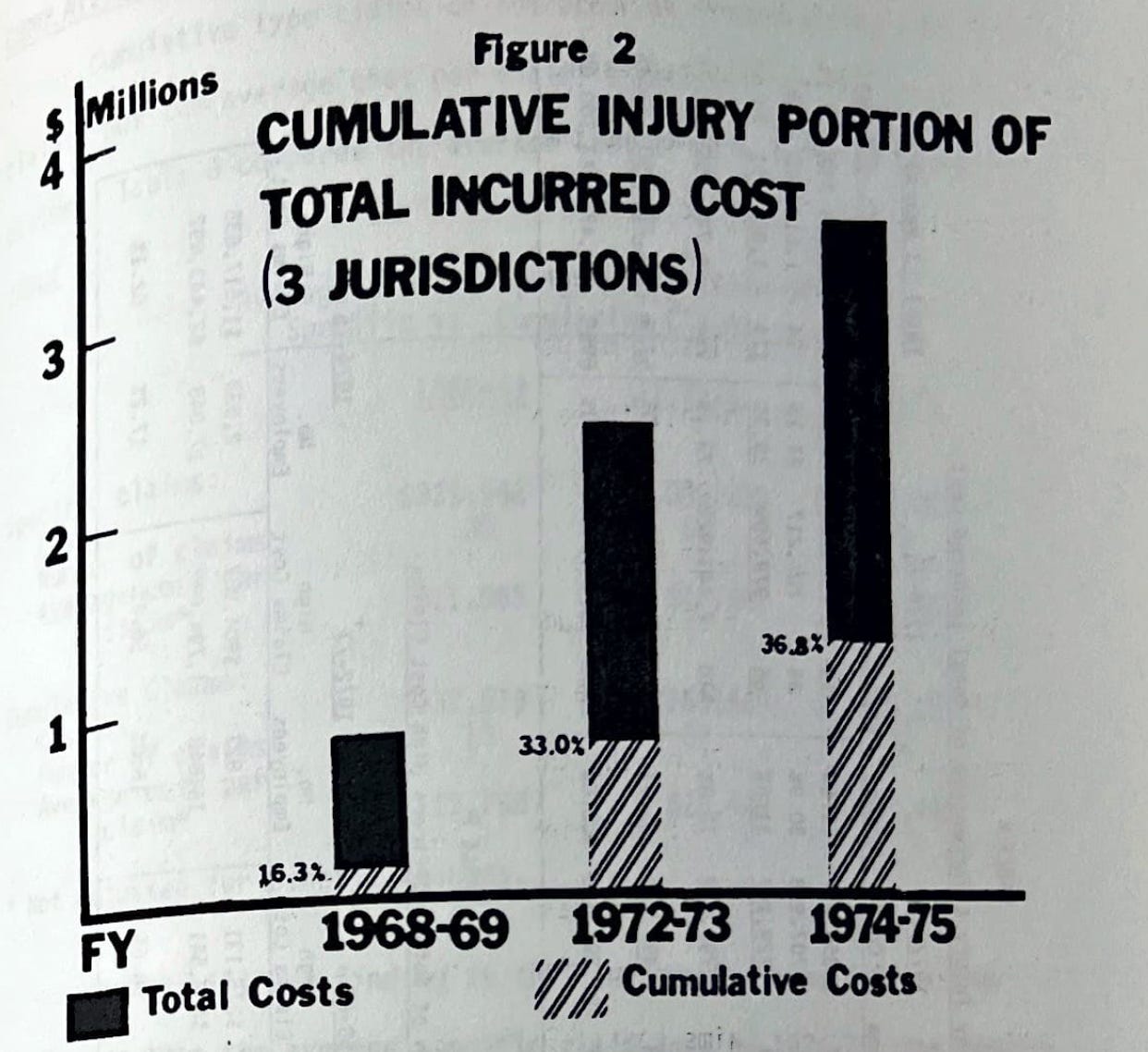
From the late 60s to the mid-70s, the share of municipal workers’ claims for “cumulative injury,” a general category for any work-related disease or illness that emerges over time, more than doubled in the largest cities as cops saw opportunities to receive pay without having to work.
This example demonstrates how cultural and political perceptions of certain workers precede the hyper-diagnostic focus involved in the medical gaslighting that exacerbates Long Covid among millions of workers today. Cops, in this case, were exempted from this scrutiny even while bankrupting California’s public insurance funds.
“Disability Employment”
The US Department of Labor’s theme for this year’s National Disability Employment Awareness Month (NDEAM) is “Celebrating Value and Talent.” But “value” and “talent” are abstracted into confusion by the same systems that ensnare workers in sickness and exhaustion before then diminishing the feasible ways their access needs could be met.
Conversations about employment as ‘opportunity’ are limited without rigorous and sustained attention to hazards that are the causes and consequences of the low employment rate of disabled people in the US (22.7% in 2024, compared to 65.5% of nondisabled people).
NEWS
New Works
The annual Superfest Disability Film Festival returns this week, from Oct. 16 to 19 with screenings at the new San Francisco Disability Cultural Center and 24/7 access to films on Vimeo.
Rights Cuts Action: The Creativity of Disabled Resistance is up at Shape Arts (High Wycombe, UK) through Nov. 5. The show features protest photography by Keith Armstrong from the 80s and 90s, with new work from disabled artists. You can tour the exhibition virtually and explore each of the artworks online.
The new issue of BUTT Magazine includes a profile of Harlem-based disabled artist Michael Rosey.
BRICKS Magazine’s Madeline Reid recently interviewed Anna Cofone, founder of the beauty-focused charity Hair & Care, about disability inclusion at fashion weeks.
For spooky season, the Access:Horror 2025 Shorts Program on Shudder celebrates “disability, horror, and all that’s good in the world” with a collection from disabled artists “designed to expand horizons and redefine the landscape of both horror and disability.” Both the open-captioned version linked above and the audio described version come with a free one-week trial to Shudder.
Also on the topic, the Disability Action Research Kollective recently released a new zine, “Horror & Disability.”
Australian “queer, crippled dance artist” Dan Daw is touring EXXY, a biographical performance “about imposter syndrome and fluctuating self-worth,” across the UK.
Violinist Leslie Ting’s What Brings You In, “exploring parallel relationships to her instrument, therapy, and the audience,” opens this week in-person and online at Theatre Passe Muraille (Toronto).
A Disabled Artist’s Journey Through Art and Activism by Wendy Elliott-Vandivier opens at the University of Pennsylvania’s Barbara Bates Center (Philadelphia) tomorrow, Oct. 15.
CALLS
The Sick Music Study Group, organized by Anna RG’s Sick Center, is seeking participants for a 4-week program to “unpack, gather, investigate, imagine pieces of sick/disabled music making.” Submit an interest form by Oct. 28.
SICK Magazine is accepting submissions for its 7th issue through Oct. 31.
sky cameron is seeking disabled opera singers to share their stories as part of a research project.
The Ford Foundation’s JustFilms program, supporting “artist-driven, feature-length documentary films that creatively intersect with the social justice issues” with up to $100,000, is accepting applications until Oct. 30.
The Rosemary Kennedy Initiative Internship, a six-month, paid internship for individuals with disabilities at the Kennedy Center (Washington DC), is accepting applications for summer 2026.
EVENTS
Introducing the New York Disability Rights Archive
Thursday, Oct. 16, 4 - 7pm ET, in-person at Positive Exposure Gallery (NYC)
Learn more about the archive and the long struggle for transportation access in New York City! The New York Disability Rights Archive was established in 2021 to preserve records of local activists and advocates. Many of these people were part of a movement that led to the Americans with Disabilities Act (ADA) and continues to this day.Genius Teatime with Vanessa Hernández Cruz
Saturday, Oct. 18, 3:30 - 4:30pm PT, online
Vanessa Hernández Cruz (she, her, ella) is an interdependent Chicana Disabled dance artist, filmmaker, visual artist, poet & an Intersectional Disability Justice activist. Your donation this week will benefit disabled folks displaced by the LA wildfires and the Opulent Mobility accessibility fund. Suggested donation $10-30; no one turned away for lack of funds.Theorizing Trauma and Disability in the Arts: A Conference
Oct. 16 - 19, in-person at UCLA and livestreamed
The UCLA Herb Alpert School of Music and the Center for Musical Humanities present a four-day event exploring different perspectives on trauma and disabilities in the arts. Free and open to the public, the conference will feature musical performances, art installations, panel discussions and audience interaction.Thursday, Oct. 16, 1 - 6pm ET, in-person at FIT and livestreamed
The symposium accompanies the exhibition and brings together exhibitors, collaborators, and scholars to present and discuss adaptive and inclusive design. A keynote presentation will be delivered by Grace Jun, Associate Professor at the University of Georgia, founding member of Open Style Lab, specializing in interdisciplinary design processes, and author of the book Fashion, Disability & Co-design (Bloomsbury Publishing 2024). In addition, the symposium will host panel discussions investigating adaptive design with invited guests and FIT faculty, students, alumni and Industry leaders such as OFS and the Adaptive Design Association. FIT alumni, who have launched their own adaptive brands, including Haley Schwartz (Vertige Adaptive), Helya Mohammadian (Slick Chicks), haptic device designer Keith Kirkland, and children’s sensory-wear co-founder, Kevin Santana (Comphie).Hospital Aesthetics: Disability, Medicine, Activism Book Launch & Lecture with Amanda Cachia
Thursday, Oct. 16, 6 - 7:30pm MT, in-person at Grant Street Studios (Phoenix) and on Zoom
Hospital Aesthetics: Disability, Medicine, Activism argues that contemporary disabled artists are offering a new hospital aesthetics, where health and care are being taken into their own hands and body-minds. The talk will be followed by a conversation with Charles Eppley, Assistant Teaching Professor of Interdisciplinary Arts & Performance and Program Lead, Disability Studies B.A.


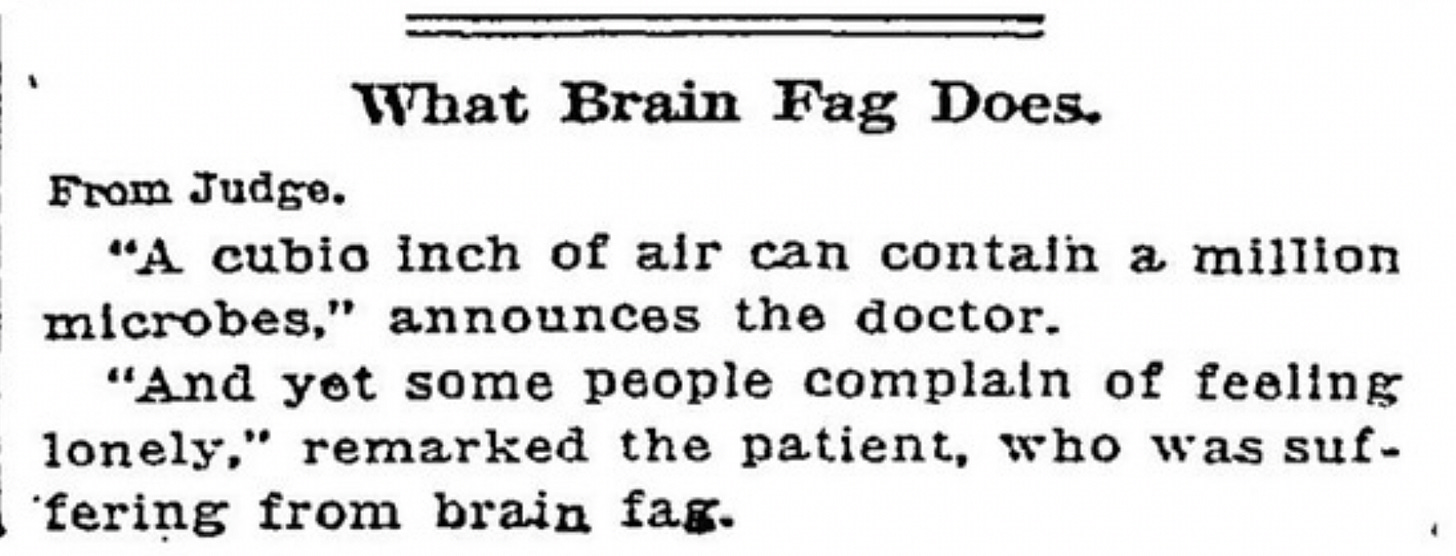
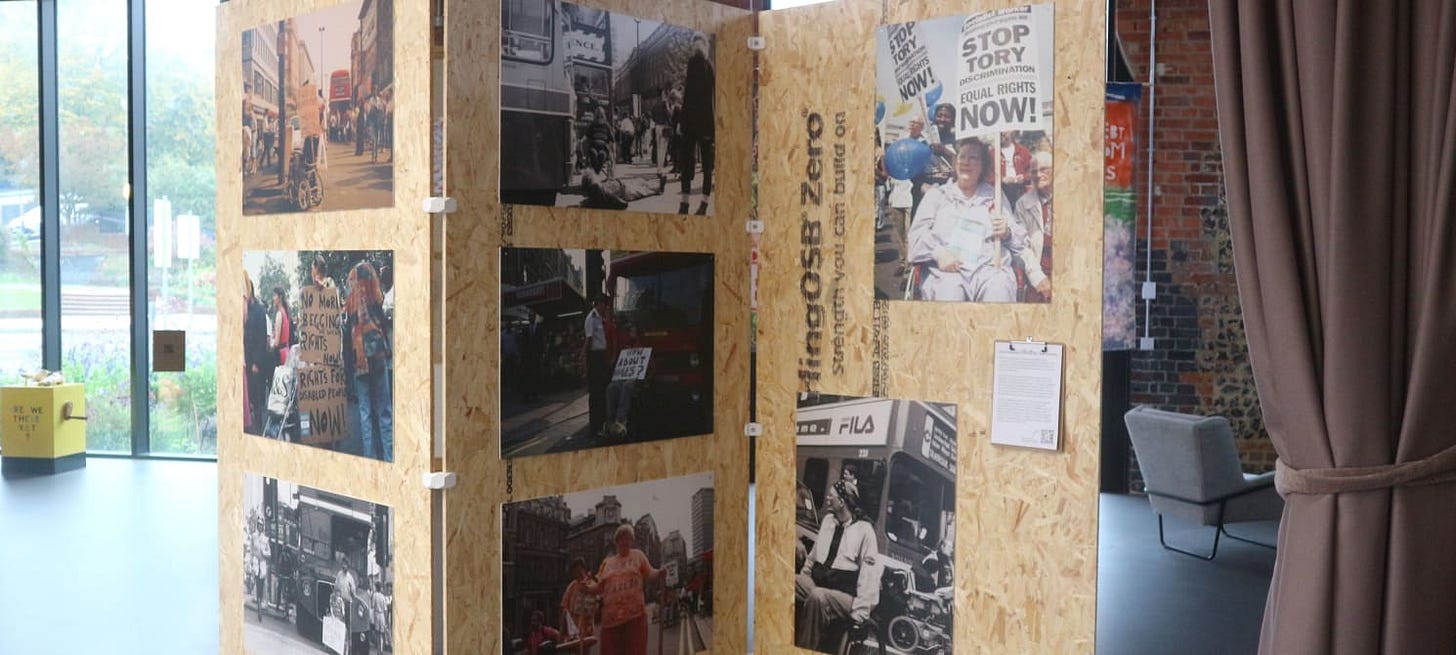
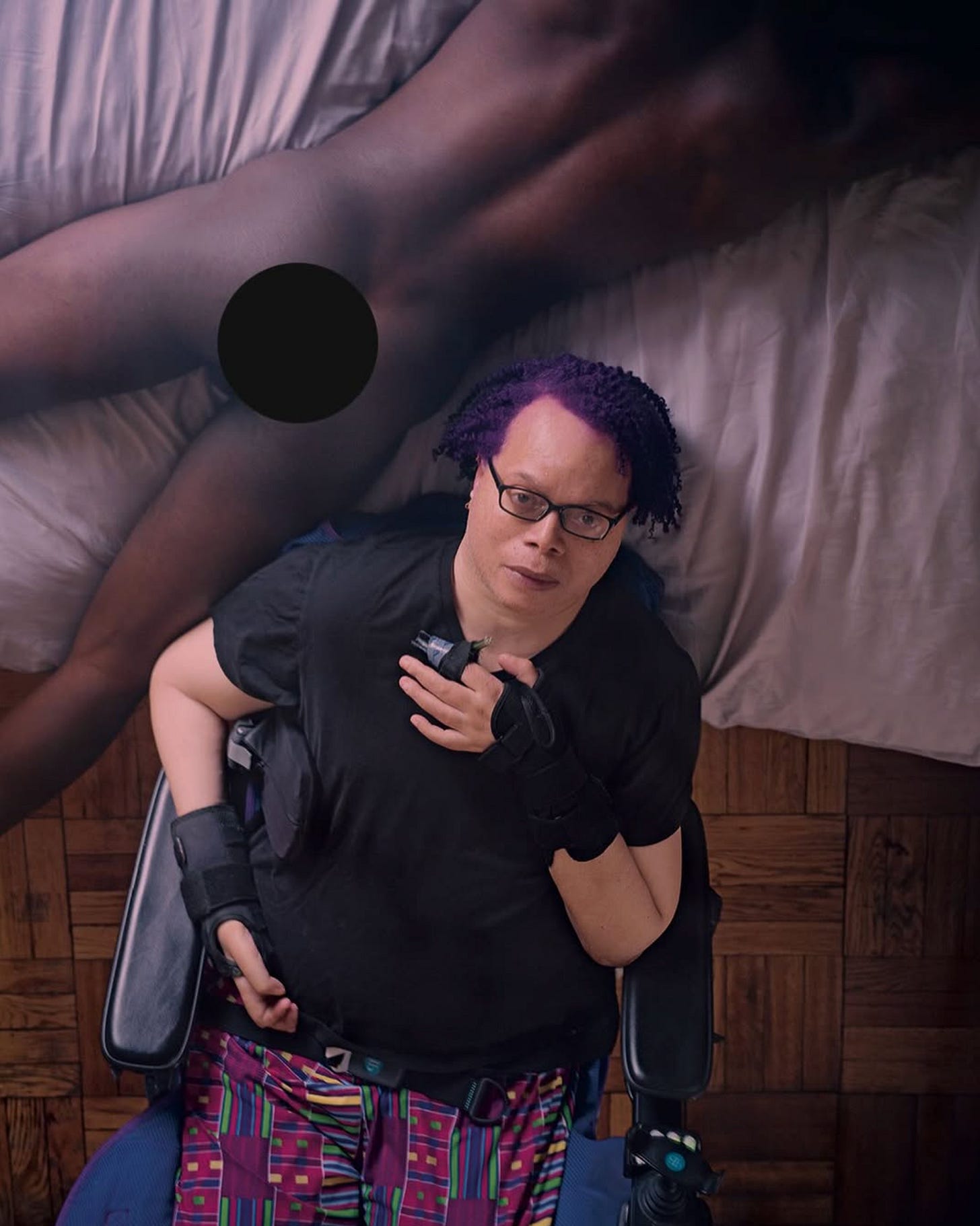
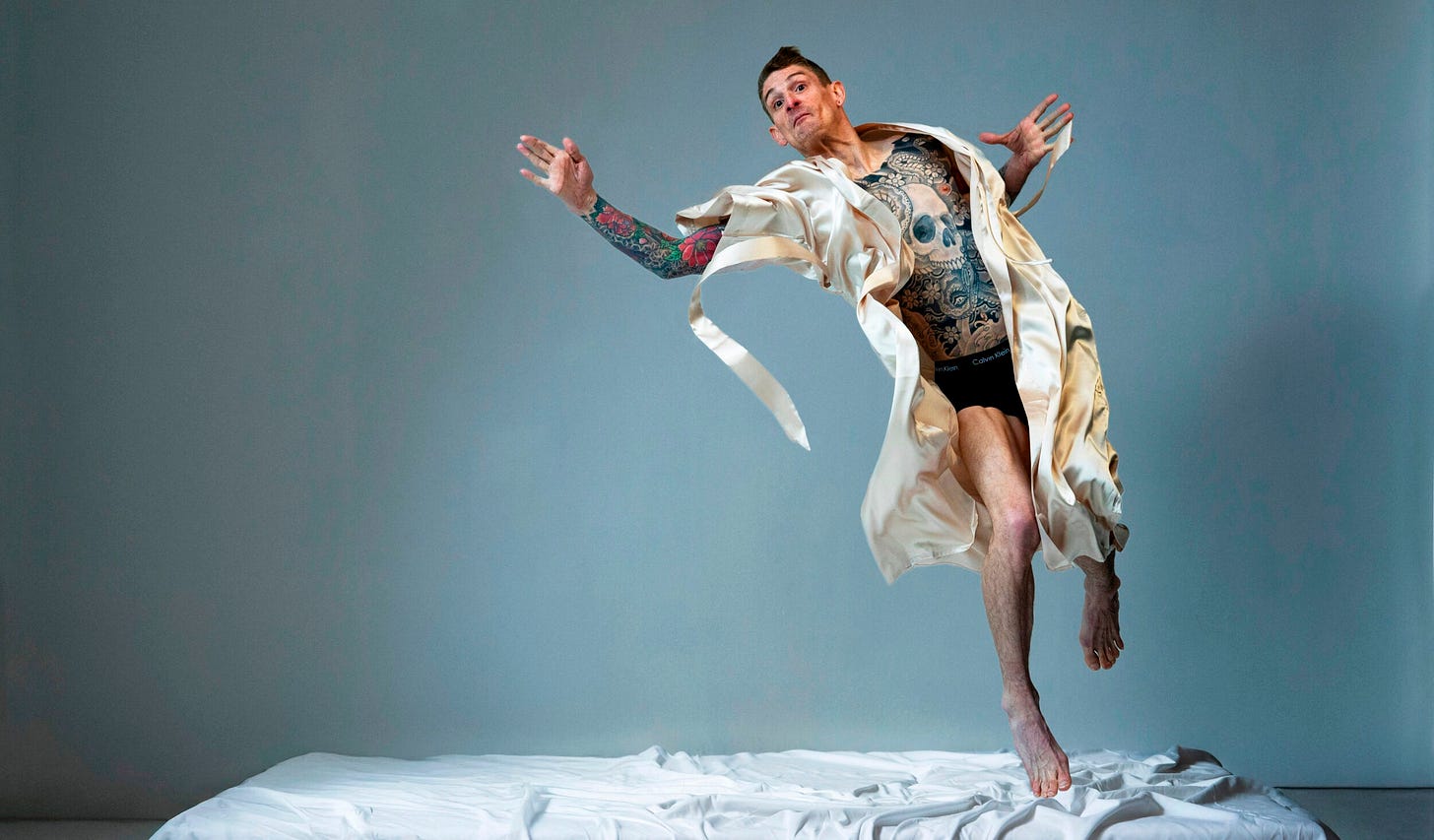
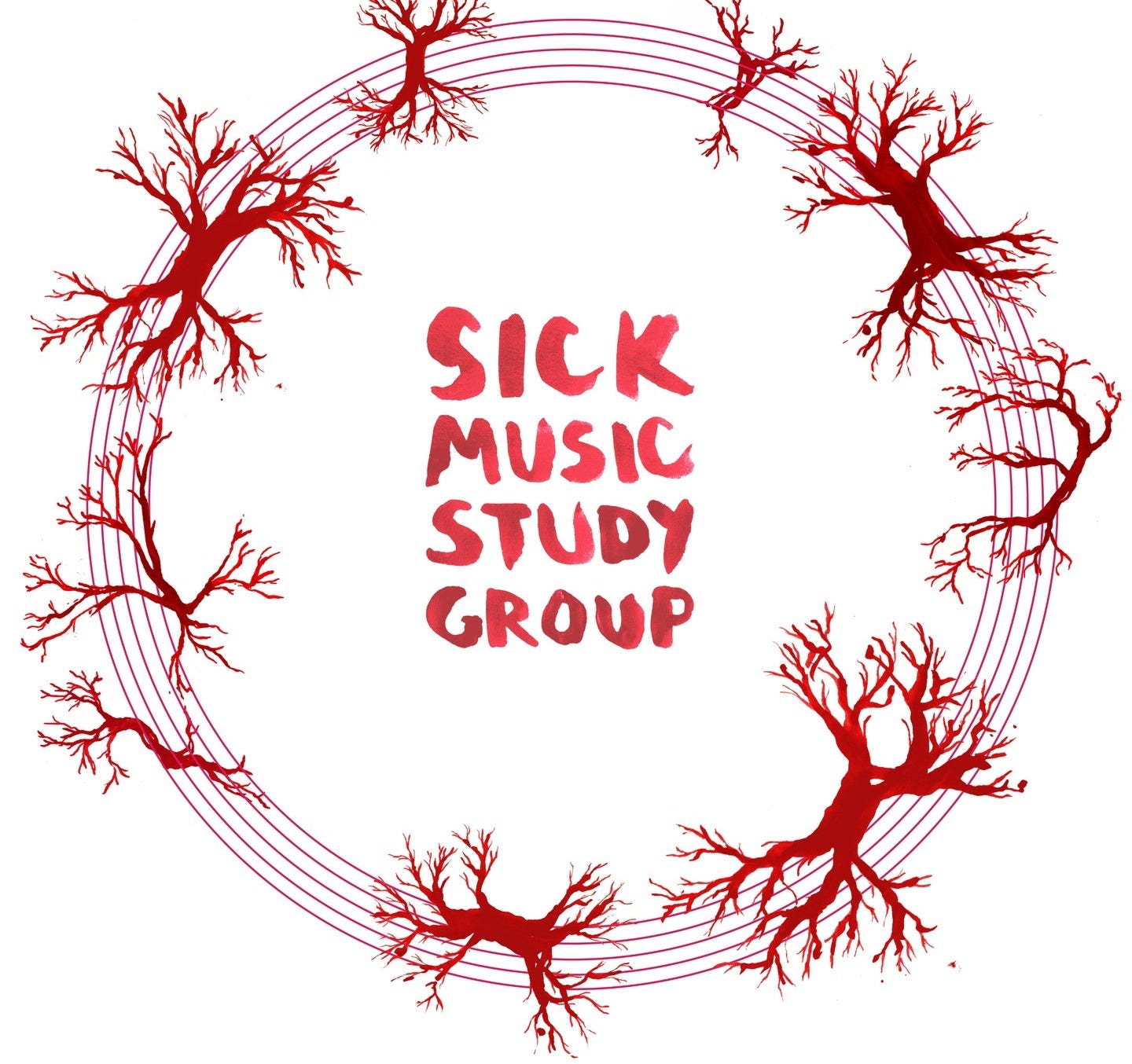
happy birthday crip news! the california police fact is wild, i had no idea!